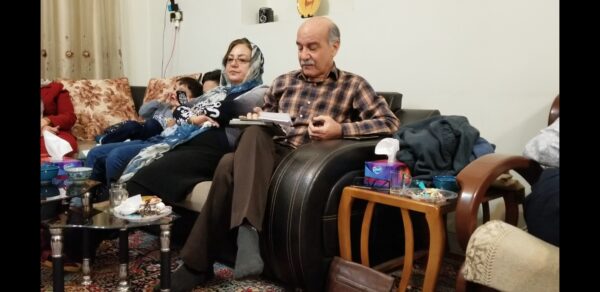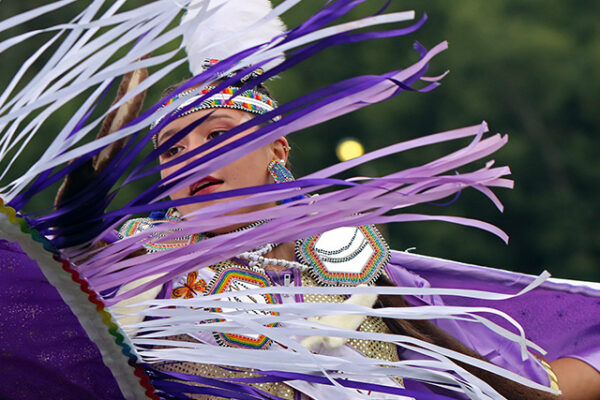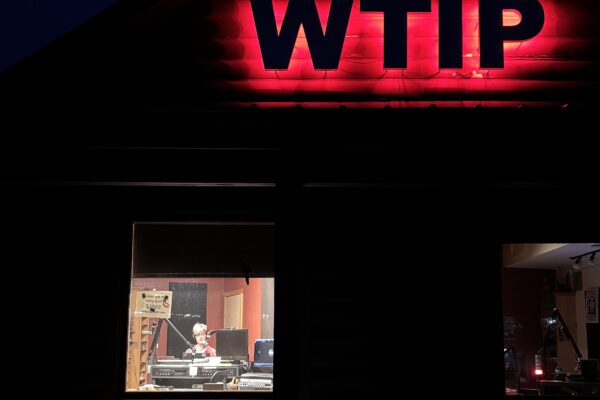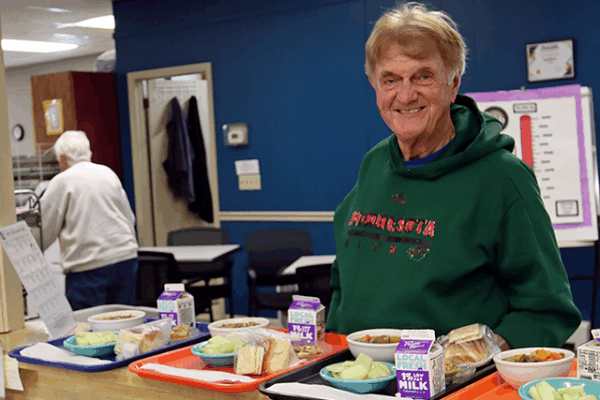Celebrating the Solstice on Yalda Night
The Winter Solstice—December 21—has passed. Most people are aware of the astronomical meaning of the solstice—it is when the sun appears to reach its most northernmost point on the celestial sphere. The Solstice marks the beginning of the end of the long, dark, days of winter.
It is a big deal here on the North Shore for the significant Scandinavian population. But the Winter Solstice has interesting and considerable meaning for other cultures as well. Yalda Night is an ancient celebration in Iran and neighboring countries.
WTIP’s Rhonda Silence spoke with Mahdi Ahmadi, an Iranian man now living in Minnesota about this traditional celebration of the Solstice. Ahmadi came to the United States in 2011 in the middle of a record-breaking winter. That is the year that snow collapsed the Metrodome stadium. Coming to the University of Minnesota that winter was a bit of a shock, Ahmadi tells WTIP. However, Ahmadi says the warmth of the people of Minneapolis has compensated for the bitter cold.
Ahmadi eventually became involved in the Twin Cities Iranian Culture Collective. The mission of the organization is to share its rich culture, which is often overshadowed by geopolitical drama. The group’s website is a delightful showcase of Iranian-Americans’ current creative works as well as Iran’s history.
WTIP asked Ahmadi about the Iranian traditions on the Winter Solstice, Yalda Night. It is a family-focused event. He recalls going to his grandparent’s house for an evening of storytelling and poetry reading. His grandfather read from the ancient tome Book of Kings. Ahmadi chuckles as he recalls how the book is filled with tragedies that have some sort of message for the readers.
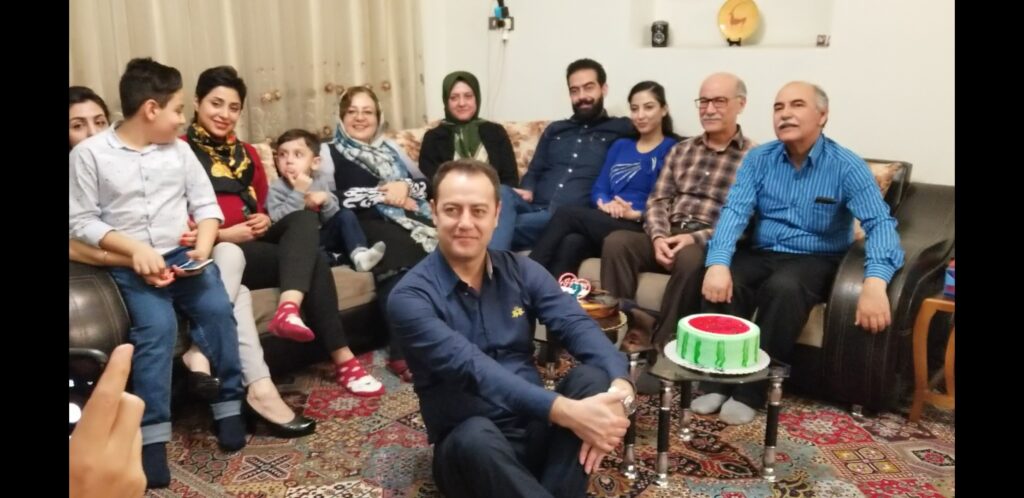
The Ahmadi family at a Yalda Night gathering in 2021. Notice the watermelon that is an important part of the Yalda celebration. It is a symbol of survival.
Another important piece of Yalda Night is the poetry of Hafez. Ahmadi notes that Hafez’s poetry is multilayered and can be interpreted in many ways. It is used as a kind of fortune-telling. Family members ask a question and the reader flips to a random page. The passage read is a message in answer to that question.
Like so many other festivals, food plays an important role on Yalda Night. Families gather for meals that feature pomegranates and watermelon. Watermelon, a summer fruit, is carefully stored through fall and winter to be enjoyed on the darkest night, as a symbol of survival.
The word Yalda translates to birth and Ahmadi says it is believed that the solstice is the birth of the sun. He said Yalda Night is like a knife that cuts the year into two halves, dark and light. It brings hope, he explains.
WTIP noted that recent news has been both troubling and inspiring, with the women of Iran standing up to the oppression of the government and the morality police in the WOMEN-LIFE-FREEDOM movement. We asked if Yalda Night would take place this year. Ahmadi said absolutely, noting that Yalda Night is thousands of years old. He acknowledged that it will be different this year and there will certainly be talk of politics. However, he said Yalda Night and the coming of light should bring hope to the people of Iran.
There were events in the Twin Cities on Yalda Night and other opportunities to learn about Iranian culture throughout the year. More information can be found on the Twin Cities Iranian Culture Collective website.
Click below to hear WTIP’s conversation with Mahdi Ahmadi.





